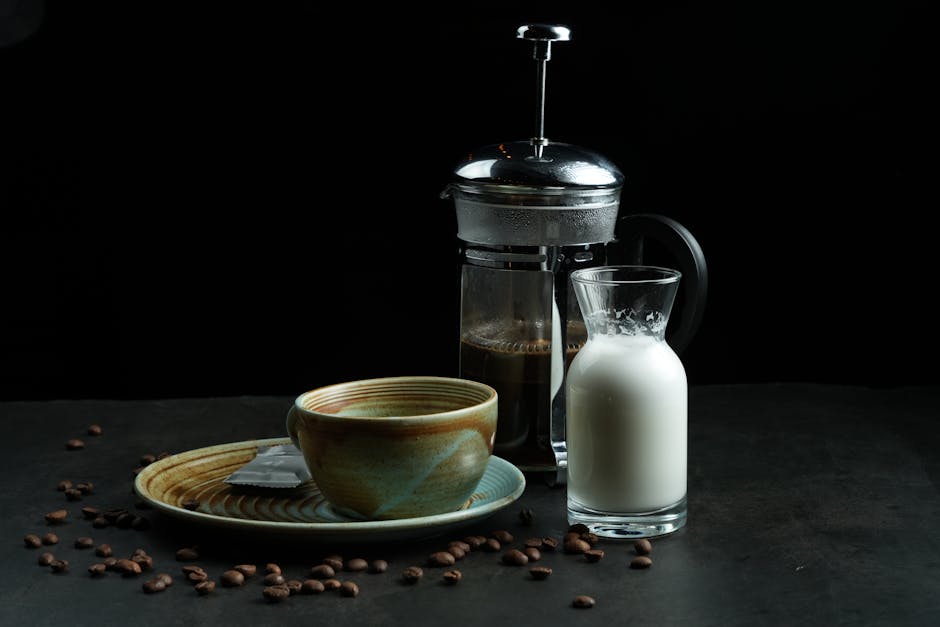Whole bean coffee basics
Whole bean coffee is simply coffee beans that are not ground, keeping their natural flavors intact until you are ready to brew them. When beans are ground, they lose their freshness more quickly, impacting the taste of your coffee. To get the best flavor from whole bean coffee, it's recommended to grind the beans just before brewing. Whole bean coffee offers a more robust and flavorful cup of coffee compared to pre-ground coffee. Remember to store whole bean coffee in an airtight container away from light and heat to preserve its freshness.
Pros and cons of whole bean coffee
Whole bean coffee offers fresher flavor and a longer shelf life. Grinding beans just before brewing releases the aromatics present in coffee beans, contributing to a richer taste in your cup. Whole bean coffee also allows you to grind beans to your preferred coarseness for different brewing methods, giving you more control over your coffee's taste. On the other hand, whole beans require a grinder, taking more time and effort before you can enjoy your coffee. Additionally, whole bean coffee has a shorter shelf life compared to pre-ground coffee due to increased exposure to air, light, and moisture.
Grinding: whole bean vs. ground coffee
When it comes to coffee, using whole beans and grinding them yourself before brewing can result in a fresher and more flavorful cup. Whole beans lock in the flavor and aroma until you grind them, releasing all the goodness. On the other hand, pre-ground coffee may have lost some of its freshness and flavor since it's been exposed to air for longer. Freshly ground coffee can also be adjusted to your preferred coarseness, whereas pre-ground coffee is already set.
Freshness factor
Freshness is crucial when it comes to coffee. Whole bean, due to its intact form, retains its flavor and aroma better than ground coffee. When coffee is ground, it exposes more surface area to air, causing it to lose freshness quickly. Opting for whole beans gives you the advantage of enjoying a more flavorful cup of coffee.
Brewing techniques for whole bean and ground coffee
For whole bean coffee, it is recommended to grind the beans just before brewing to maintain the freshness and flavor. You can use a burr grinder for a consistent grind size, which is crucial for balanced extraction during brewing. For ground coffee, ensure you store it properly in an airtight container to preserve its taste. When brewing, pay attention to the grind size, as different methods require specific levels of coarseness or fineness for optimal extraction.
Aroma and flavor comparison
Ground coffee loses its aroma and flavor faster than whole bean coffee. When coffee beans are ground, they release their oils and gases more quickly, leading to a loss in taste and scent. On the other hand, whole bean coffee retains its freshness longer since the oils and gases remain intact within the bean until it's ground just before brewing. This means that brewing with freshly ground beans will result in a more aromatic and flavorful cup of coffee compared to using pre-ground coffee.
Shelf life: whole bean vs. ground coffee
Ground coffee has a shorter shelf life compared to whole bean coffee. Once coffee is ground, it begins to lose its freshness and flavor more quickly. Whole bean coffee, on the other hand, retains its freshness longer because the beans are protected by their outer shell until they are ground right before brewing. To maximize the flavor of your coffee, it is recommended to grind whole beans just before brewing.
Pricing comparison
Whole bean coffee is generally more expensive than ground coffee. Whole bean coffee typically costs more because it retains its flavor and freshness for longer periods before grinding. On the other hand, ground coffee is more convenient but usually costs less per pound than whole bean coffee. Specialty whole bean coffees can be even pricier due to their unique flavors and processing methods. When comparing prices, keep in mind that factors like the brand, quality, and packaging can also affect the cost of both whole bean and ground coffee.
Environmental impact
Coffee grounds create more waste than whole beans, as they usually come in disposable packaging. Whole bean coffee, on the other hand, often comes in recyclable bags, reducing environmental impact. Additionally, grinding your beans fresh at home means less energy consumption compared to the industrial grinding process for pre-ground coffee. By opting for whole bean coffee, you can make a small but meaningful contribution to reducing waste and energy consumption in the coffee industry.
Making the best choice: whole bean or ground coffee
Freshly ground coffee beans produce the best flavor in your cup of joe. When coffee beans are ground, they lose their freshness quickly, which can affect the taste of your coffee. Whole bean coffee, on the other hand, retains its freshness for a longer period. Grinding your coffee beans just before brewing releases all the flavors and aromas, giving you a more flavorful and aromatic coffee experience.







